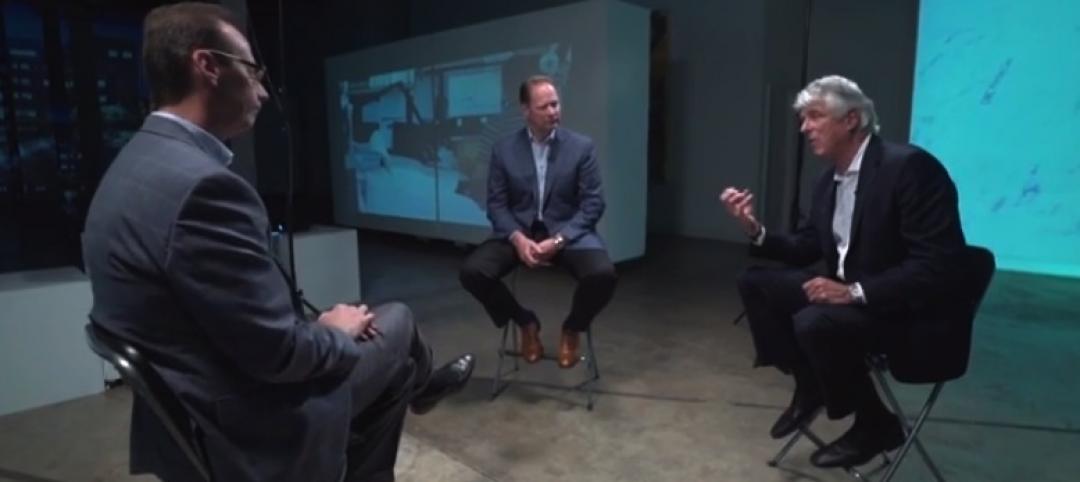You may be violating an employment law just by trying to be nice to your employees, says a new report.
The California Chamber of Commerce has produced a white paper cataloging the top 10 mistakes most likely to get a company sued. While a few of the laws cited apply specifically to California, some of them are federal and may apply in your state.
The report observes: "Employers may unintentionally violate employment laws simply by trying to provide some flexibility for an employee, save money for the company or just be nice."
Here are the top 10 mistakes:
1. Classifying all employees as exempt, whether they are or not
It may be easier to pay someone a salary rather than figure out overtime, meal breaks, rest breaks and the like. The time (and money) you save on bookkeeping is a false economy, however, since you could pay big time in penalties or a lawsuit. (See the report for more specifics.)
2. Letting employees work through lunch so they can take off early
A non-exempt employee is required to be given a 30-minute meal break, plus a 10-minute break for every four hours worked. If you deny one or the other, you owe the person an extra hour's wages; if you deny both in the same day, you owe an additional two hours. The wages must be paid during the pay period in which it's missed. The employee cannot waive his or her right to the breaks.
3. Making everyone an "independent contractor" because having employees is too much trouble
The report notes that contractors are happy until one of the following comes up: workers' compensation, unemployment insurance, state disability insurance or paid family leave benefits. Avoid these legal spiderwebs by determining who is and who isn't a contractor.
4. Not providing training about harassment and discrimination to managers and supervisors
Don't assume your employees won't need the information. Avoid lawsuits by providing the basic sexual harassment training required by law.
5. Letting employees decide which, and how many, hours they want to work each day
Most employees are restricted by law regarding the number of hours they can work without needing to be paid overtime. If you are allowing longer workdays for four-day workweeks, there are rules that need to be followed. Check with your state laws for specifics.
6. Terminating any employee who takes a leave of absence
From the report: "Employees have legal protection when they are away from work for various reasons, including workers' compensation, disability, pregnancy, family and medical leave, military leave, jury duty and many more."
7. Withholding an employee's final check if they fail to return company property
You may think you can withhold money while you wait for an employee to return a computer or a cellphone, but think again. Some states have laws that require you hand over the check the minute the words "you're fired" come out of your mouth. And if an employee quits and gives more than 72 hours notice, the check must be ready on his or her last day. The penalties start accruing from the moment the check is late-one day of wages for every calendar day of delay.
8. Providing loans to employees and deducting the money from their paycheck each pay period
This seems perfectly fine, doesn't it? Except most state labor codes permit only paycheck deductions authorized by law and those authorized by the employee for health insurance or other benefits. No other deductions are permitted. If you're making a loan, you should have the employee sign a promissory note and a lawyer review it.
9. Using noncompete agreements to protect confidential information
Many employers force employees to sign these agreements to protect business secrets, customer lists, and pricing information and to prevent employees from working for the competition. Essentially, you can't force your employee to stay with you, nor can you prevent him or her from making a living.
10. Implementing a "use it or lose it" vacation policy and avoid paying out all the money at termination
Accrued vacation is a form of wages and cannot be denied. You can stop an employee from accruing vacation beyond a "reasonable" amount, but you cannot take away what he or she has already earned. What is considered a "reasonable" cap? Generally 1.5 to two times the annual accrual, says the report.
Have you suffered any consequences from doing any of these things?
--
Courtney Rubin is a business writer and contributing editor to Inc. magazine.
Related Stories
| Nov 17, 2014
Developments in 3D printing can assist architecture in the smallest details
Researchers at the Department of Energy’s Oak Ridge National Laboratory (ORNL) have developed a way for 3D printed metals to be produced with an unprecedented degree of precision.
| Nov 17, 2014
A new BSL-3 public-safety lab debuts in Vermont
The laboratory will be used to perform a wide range of analyses to detect biological, toxicological, chemical, and radiological threats to the health of the population, from testing for rabies, West Nile, pertussis and salmonella to water and food contaminants.
| Nov 17, 2014
'Folded facade' proposal wins cultural arts center competition in South Korea
The winning scheme by Seoul-based Designcamp Moonpark features a dramatic folded facade that takes visual cues from the landscape.
| Nov 17, 2014
Workplace pilot programs: A new tool for creating workspaces employees love
In a recent article for Fast Company, CannonDesign's Meg Osman details how insurance giant Zurich used a workplace pilot program to empower its employees in the creation of its new North American headquarters.
| Nov 17, 2014
Mastering natural ventilation: 5 crucial lessons from design experts
By harnessing natural ventilation, Building Teams can achieve a tremendous reduction in energy use and increase in occupant comfort. Engineers from SOM offer lessons from the firm’s recent work.
| Nov 14, 2014
Bjarke Ingels unveils master plan for Smithsonian's south mall campus
The centerpiece of the proposed plan is the revitalization of the iconic Smithsonian castle.
| Nov 14, 2014
Haskell acquires FreemanWhite, strengthens healthcare design-build business
The combination expands Haskell’s geographic presence by adding FreemanWhite’s offices in Chicago, Charlotte, Nashville, and San Diego. FreemanWhite will retain its name and brand.
| Nov 14, 2014
What college students want in their living spaces
In a recent workshop with 62 college students, architects from Little explored the changing habits and preferences of today's students, and how those changes affect their living spaces.
| Nov 14, 2014
JetBlue opens Gensler-designed International Concourse at JFK
The 175,000-sf extension includes the conversion of three existing gates to international swing gates, and the addition of three new international swing gates.
Sponsored | | Nov 12, 2014
Eye-popping façade highlights renovation, addition at Chaffin Junior High School
The new distinctive main entrance accentuates the public face of the school with an aluminum tube “baguette” system.

















